I took a photo last year of my stomach. I’d been out running and it was a hot day. I was running round the park and getting hotter, so I took off my t-shirt and ran in shorts and a sports bra that looks like a crop top.
When I got home I took the photo and posted it to Instagram to highlight the thought processes that had gone on in my head for a few laps before I took off my shirt: what will people think!
I was hot so I took my top off, in an ideal world that’s all that anyone would think. But we don’t live in that world. I was worried people would think I was arrogant, that I was showing off or that I shouldn’t have my stomach out because it wasn’t perfect.
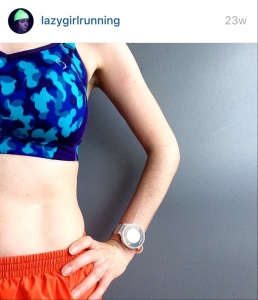 And then I posted a photo on Instagram and the thoughts repeated themselves.
And then I posted a photo on Instagram and the thoughts repeated themselves.
Stomachs are a much fetishised area in the fitness media, both online and in print. You can’t walk into a newsagents without headlines screaming out to you to ‘Blast belly fat’ and ‘Get a six pack’.
I have a scar from an operation on my stomach, one weird white hair that grows about an inch long and (despite running 40 miles a week and going to the gym) I don’t have a six pack. There aren’t many stomachs like mine on Instagram, and that’s part of the reason why I posted it. My body is strong enough to run 80k, I don’t need my muscles to be visible through my skin to validate its existence.
I follow a lot of great women on social media: women doing marvellous things. Women challenging themselves, going on epic adventures and having a great time. I know that there’s this other side to social media, the side that is motivated by inches lost and gained, and by presenting perfection. But I choose to ignore it.
One of my January ‘resolutions’ was to stop clicking the little magnifying glass icon on Instagram. This icon brings up a feed of pictures from people you haven’t chosen to follow but that the app thinks are relevant to you. Largely, when I click it, it shows me six packs and pictures of avocados. I’ve nothing against avocados but if you’ve seen one, you’ve seen them all. And yet I’d scroll through looking at photos of people I didn’t know whose snapshots of their life I’d compare to my own.
Social media is a real opportunity for us all to unite again the unrealistic ideals presented to us by mainstream media, to claim a space for our own and show our lives in all their glorious, messy imperfection. But we’re failing to take it.
I have a WhatsApp group chat with five friends. Last month we challenged ourselves to swim the English Channel virtually as a group and kept a log of our collectives miles in the pool. We encouraged each other, shared pictures of goggle marks and laughed a lot. We made two and a half virtual crossings of the Channel. I met all these women through social media and now they’re real life friends.
I read an article last week about the rise in feminist newsletters and how women are carving out a safe space for sharing writing and ideas free from online trolls and commenters. Maybe, subconsciously, this is what my group and friends and I are doing with our WhatsApp group, using it as a safe place to encourage each other and share a few jokes free from the butting in of other unhelpful or negative commenters.
A few simple rules for a healthier online life
Follow accounts that make you want to go outside and have adventures, not those that make you want to hide under the covers.
Follow people that make you feel good about yourself, not those that make you feel bad about yourself.
Be less bothered about what our own and other people’s bodies look like on and offline, and focus more on what they’re doing.
Post ‘imperfect’ pictures of yourself. Let’s drown out the airbrushed six packs with an avalanche of real life.
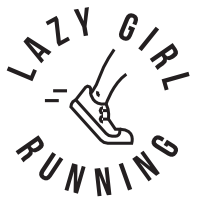


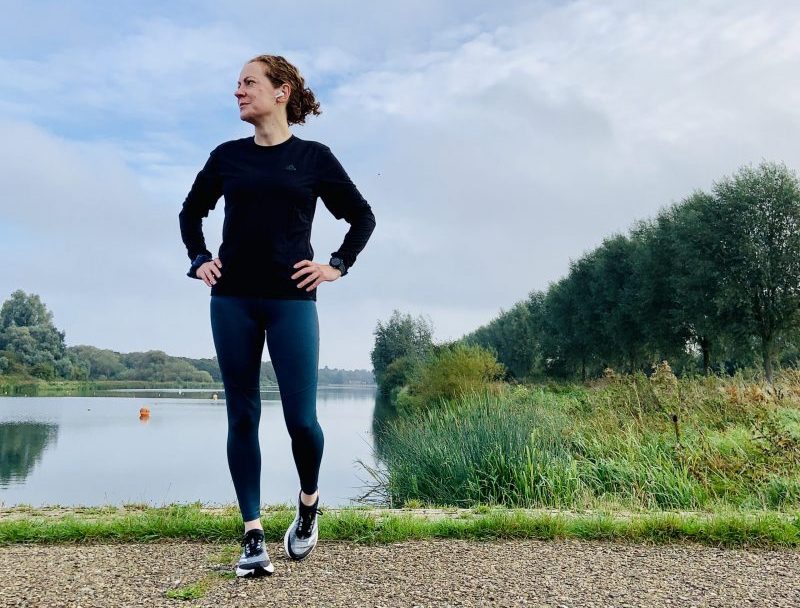
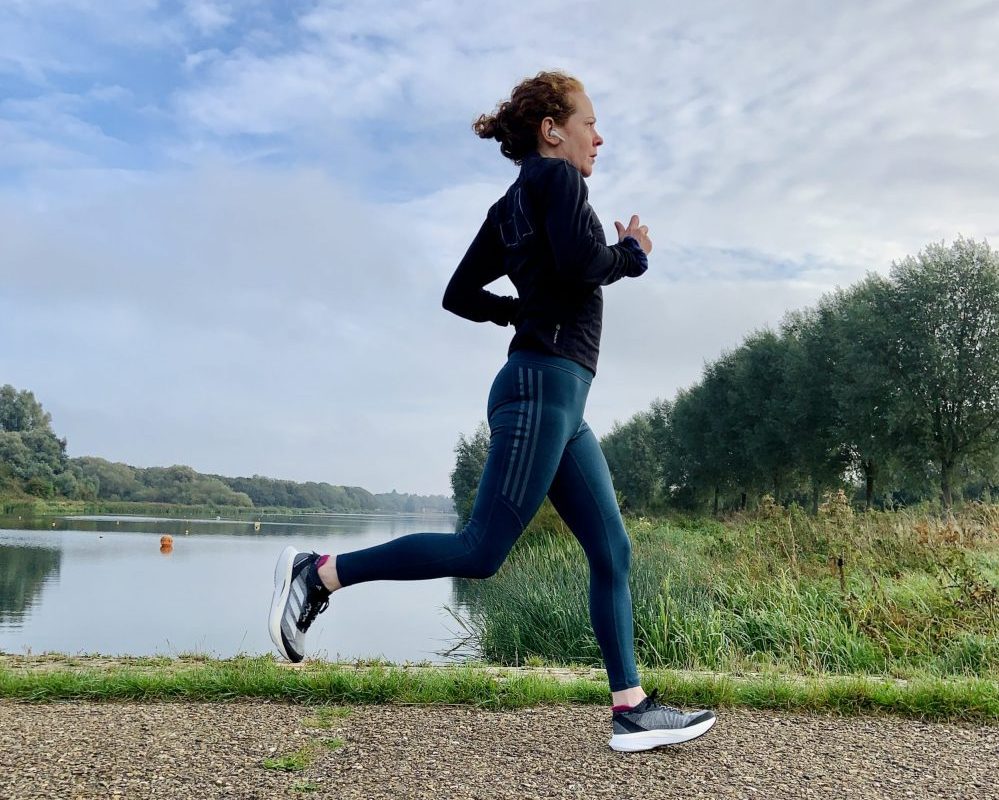
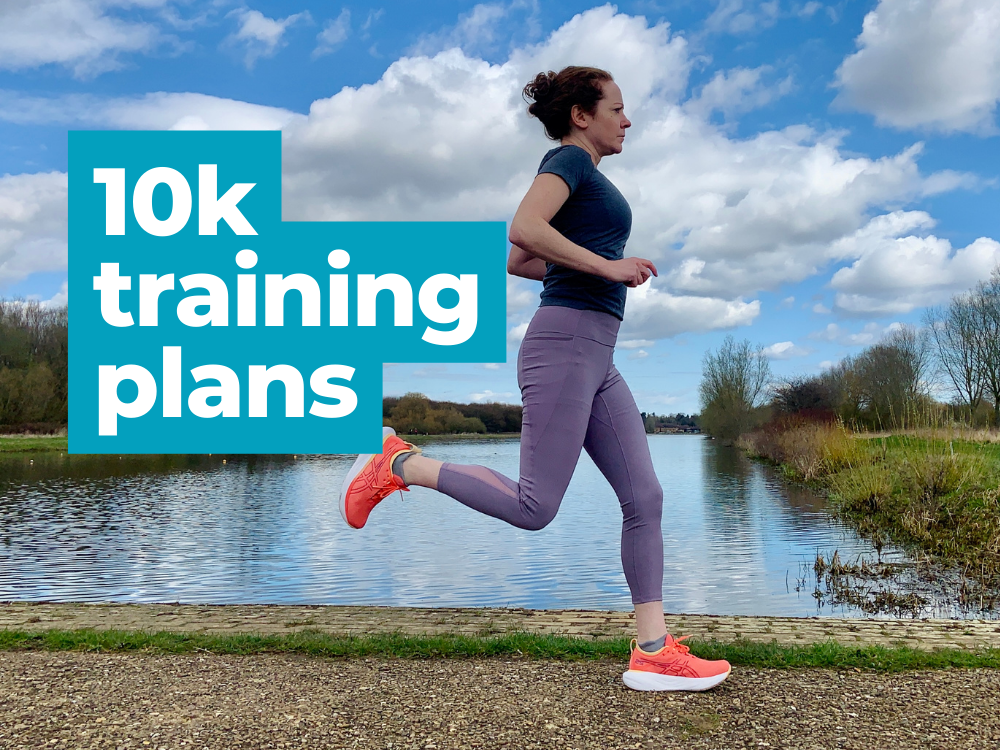
Hear hear! And that’s a great selfie.
I actually think my abs are my best feature and wish I could show them off more often…
You’re 100% right. You know those instagram accounts that only have pictures with abs? People also have faces, they’re not just half bodies…I don’t follow those types of accounts, they basically show me nothing, I got nothing to learn and it’s not even that motivating. I like real people with real lives and I try to learn a little bit about each person that I follow or follows me. I don’t have a 6 pack, I think I never will, but I’m happy with being strong and fit.
A pleasure to read. I don’t ever look at photos on Instagram that are not from people I follow. And lately I’ve unfollowed quite a few avocado/sixpack posters. Like you said – once you’ve seen one, you’ve seen them all 🙂
Couldn’t agree more! I l one your blog and enjoyed your books so much that I re-read them ( un-usual for me!) I’m probably at least 10 years older than most readers of running/ fitness blogs and I’m not interested in 6 packs. I’m proud that I’m having a Love affair with running again and the strong body I’m building, your blog inspires me to keep going. Thank you
So true! Thank you for putting words on what I’ve been feeling lately. 🙂 I started reading your blog and books a while ago but this is my first time commenting (oops!). You were such a huge help when I first started running, I can’t thank you enough!
I agree. I too don’t have a 6 pack. I instruct 6 spin cycle classes a week, 4 high intensity body weight classes, run when time allows and last weekend managed a 47.5 km mountain marathon with no extra training…. I too know that the 6 pack is there. It’s strong and well trained and that I just like food too much to starve them into sight…,.
I’d take the confidence, health, fitness and general strength to take on life that comes from running and training properly over the narcissistic six-pack diet “shredding” regime that drives the Instragram six-pack feed any time.
I see similarly worrying trends in the male fitness world too – with unnaturally bulked up guys giving it the gun show with the steroid alarm bell ringing loudly in the background.
I’ve done enough different types of sport over the years to know success comes down to something more than looks, to dedication, to spirit, to time and talent applied – and so for me I’ll keep mostly steering clear of Instragram and stick to Twitter and blogs where I can read about what people have actually achieved not what they looked doing it.
Folks are welcome to post away with “real” pics to Instagram to re-dress the balance any time but I’ll still prefer to hear the real stories than seeing any of the pictures.
Loving your words ! Thank you x
Totally agree. We made a list of Instagrammers who are *actually* inspiring – all amazing women who are definitely worth a follow! No abs, pouts or pictures in pants, just fun, interesting and entertaining.
http://www.veggierunners.com/2015/11/08/real-fitspo-6-inspirational-instagrammers-to-follow-today/
Awesome post! It’s great to read something so relatable for normal women (and men!). Being someone who uses social media to track my fitness journey I’d be lying if I said I was 100% comfortable with every post I’ve made of my body. I’ve also not posted photos through self criticism that mine won’t look like *insert fitness model name*. Social media is awesome but it’s also highly critical. I’m currently setting up a blog myself and hope to bring a real approach to all my social media platforms, rolls and all lol! Xx
I love your honesty and, dare I say, bravery in posting this strong, but potentially unfashionable blog post. Bravo! You can become “ostracised” from the norm. but that’s a good thing in my book!
I suppose as a child of the 70’s I spent all my spare time rowing & I was never a follower of fashion & frankly never have been. But I did develop strong stomach muscles, but Pilates has taught me that the strong muscle group are deep below the revered 6 pack, which are in fact nothing but show muscles!
Love your stomach, love your blog. And as an earlier commentator said, we are all human & different, and what matters most is to get out and take part In whatever we choose to do.
‘Follow accounts that make you want to go outside and have adventures, not those that make you want to hide under the covers.’
And this is why we follow you.